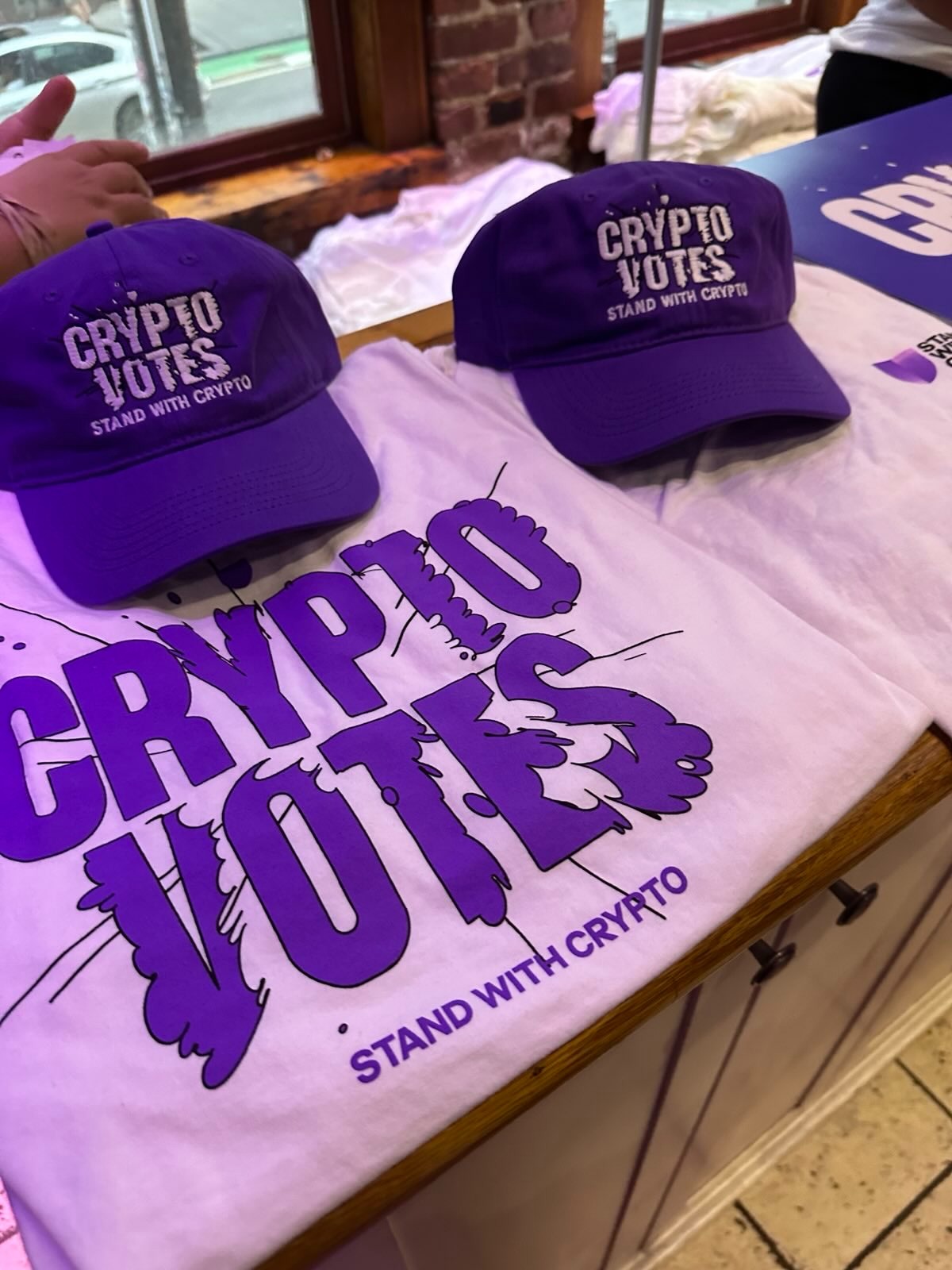As cryptocurrency boosters snacked on cold cuts and crudités inside a darkened Jersey City music venue last week, three candidates for New Jersey governor took the stage to pledge their support for the industry.
“Jersey is too expensive. We’ve got to get taxes down, we’ve got to get our rents down, we’ve got to get our costs down,” said U.S. Rep. Josh Gottheimer, a centrist Democrat and middle-of-the-pack contender in Tuesday’s gubernatorial primary. “The key to that, I believe, is crypto. So please know that you’ve got a great champion in me.”
Under Donald Trump’s presidency and a Republican-dominated Congress, the crypto industry has racked up a series of political wins. It could be within days of winning full Senate support for one of its most prized pieces of legislation, a so-called “stablecoin” bill endangered mostly by the Trump family’s attempt to profit off the burgeoning asset class.
But the industry’s power brokers know that state offices — like governor’s mansions — could play just as important a role in crypto’s future. Industry lobbyists would like to loosen state regulations and win investments from massive public pension funds, and they’ll need state lawmakers and executives to achieve that.
For three candidates who trooped onto the stage at the rally hosted by an industry-funded group last week, the event’s appeal was obvious. Gottheimer drew more than $240,000 in campaign cash from crypto super PACs during his last congressional race. Fellow Democrat Steve Fulop, the mayor of Jersey City, has wooed crypto voters by investing part of the city’s pension fund in bitcoin. They joined talk radio host Bill Spadea, a long-shot candidate in the Republican primary, for a chance to pitch undecided voters last Thursday at an event hosted by the industry group Stand With Crypto.
“There is no mayor in the state of New Jersey that has a stronger record with regards to crypto for a longer time than I do,” Fulop said, nodding to the pension fund investment. “There is no mayor in New Jersey that has been more involved personally in crypto than I have.”
“I care a lot, because it hurts my money, for real.”
Some attendees said they were excited about crypto’s growing political clout — while adding that other issues were more likely to sway their vote. Some said they wanted to network or catch the free event’s featured performers, rappers 070 Shake and Big Sean. Watching from the audience, a college student who makes daily crypto trades gave a more jaded explanation for his attendance.
“I care a lot, because it hurts my money, for real. I was never into politics until the new Trump reelection, because they cracked the system,” said Sebastian Diaz. “The news moves the markets, instead of the actual projects.”
Crypto Throws Its Weight Around
Democrats are favored to win the New Jersey governor’s race in November, so the party’s primary on Tuesday will likely decide who replaces term-limited Democratic incumbent Phil Murphy. (While frontrunner U.S. Rep. Mikie Sherrill did not attend the rally, Stand With Crypto has rated her as “strongly” supportive of the industry.)
Political observers in New Jersey have said that crypto ranks at most a minor issue in the governor’s race, albeit one that could sway the votes of a few passionate supporters. One industry critic has asserted that the candidates lining up to back crypto may be motivated by a mix of “opportunism and fear.”
From its start, Stand With Crypto has been closely affiliated with Coinbase, a crypto exchange that drew early backing from the Silicon Valley venture capital firm Andreessen Horowitz before going public in 2021.

Photo: Matt Sledge/The Intercept
While the nonprofit markets itself as grassroots, Stand With Crypto has money for the sorts of events that would be the envy of most advocacy organizations, including a branded purple bus tour through five battleground states last year and an evening with the rapper Nas.
In a tax form filed last November, Stand With Crypto revealed that it had over $8 million in revenue for 2023. The group did not disclose its donors on the form and didn’t respond to a request for comment on who they are. A “leaderboard” on its website states that it has received $1.3 million from the crypto wallet provider Exodus and $1 million from another crypto company, MoonPay.
Political Airdrop
When crypto entrepreneurs want to build buzz for a new project, they will often resort to an airdrop: a free distribution of their tokens in exchange for social media posts.

Photo: Matt Sledge/The Intercept
The modest buffet featuring crackers, cheese, and ranch dressing, accompanied by free music, may have been the political equivalent of an airdrop. For half an hour, the New Jersey native 070 Shake sang and rapped songs to a crowd of several hundred. She asked the crowd for a cigarette and smoked it before stubbing it out on her accompanist’s guitar.
The rally appeared to draw attendees with a wide range of attitudes about the industry itself. Many said they were crypto enthusiasts excited that politicians were finally taking note. Others just liked the idea of a free party.
Jersey City resident Carla Williams said she’d come because her friend was trying to convince her of crypto’s benefits, and she wanted to learn more.
“I’m all for a good time and free stuff,” she said, waiting in a short line to get into the 800-person capacity White Eagle Hall. But she was wary of diving into the industry head first.
“If it’s not FDIC-approved, I don’t know if I want to do it. I want to make sure if somebody steals it, I get most of my money, or all of my money, back,” Williams said.
Looking Ahead
Crypto doesn’t yet have backing from the Federal Deposit Insurance Corporation — but it does have plenty of supporters in Washington.
The industry faced a massive setback after the collapse of the fraudulent FTX cryptocurrency exchange in 2022, but crypto’s political influence returned in roaring form in last year’s congressional races.
A new wave of pro-crypto lawmakers from both parties came into office in January with help of the Fairshake super PAC, another Coinbase-backed political entity. (Fairshake also backed Gottheimer’s reelection.)
Ahead of a Senate vote on so-called “stablecoin” legislation last month, Stand With Crypto flooded Senate offices with emails and warned that it would track support for the bill on a public “scorecard,” a common tactic for influence groups like the National Rifle Association.
When the Senate voted to begin debate on the stablecoin bill, the group celebrated on social media. A group official promised that crypto boosters would “remember the lawmakers who have our backs.”
The ultimate fate of the stablecoin bill remains in doubt, however, as senators bicker over a proposed amendment that would tackle the divisive issue of credit card swipe fees. The Trump family’s wholesale embrace of crypto could make it harder for the industry to win political support for a more far-reaching “market structure” bill for other types of crypto assets.
But building stable political power requires making inroads in government below Congress or the Oval Office. To achieve that, the crypto industry is prepared to use as many free concerts and cold appetizers as it takes.
Later this month, Stand With Crypto is hosting another rally in New York City ahead of its June 24 mayoral primary. They promise “food, drink, and surprise live performances from NYC musical guests.”

